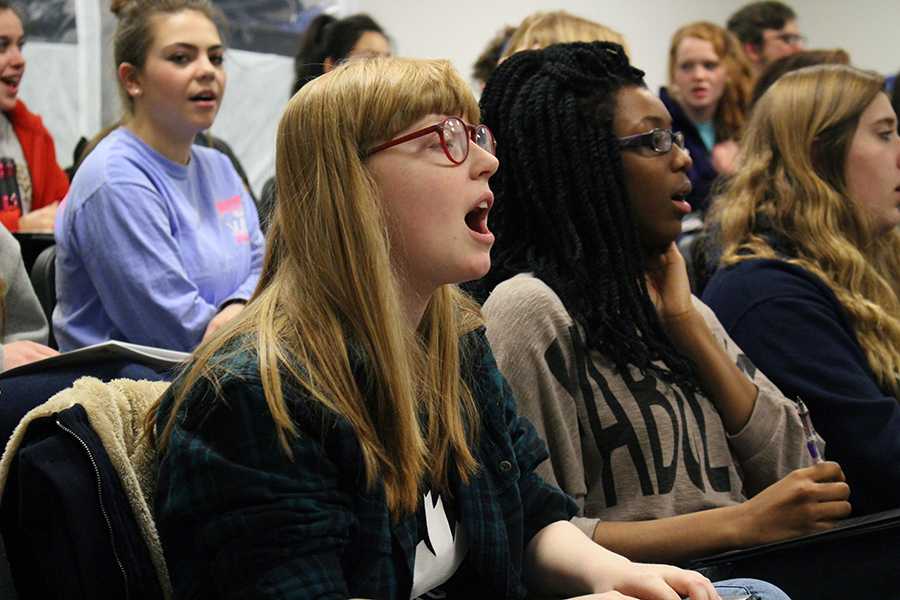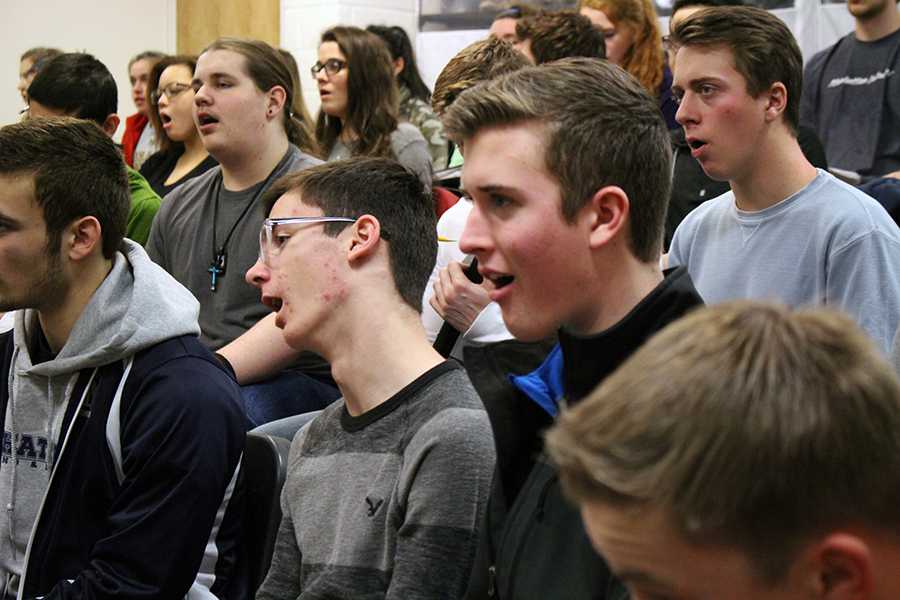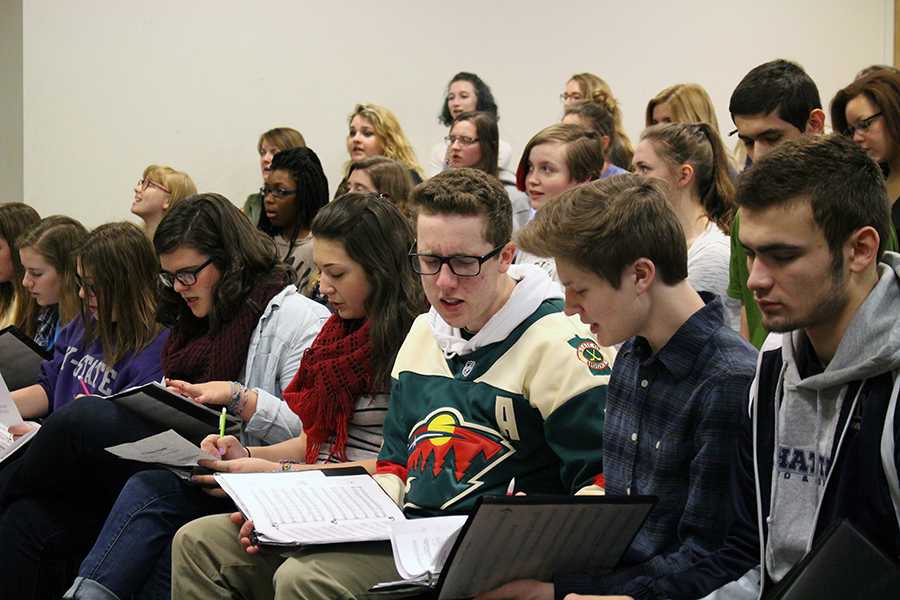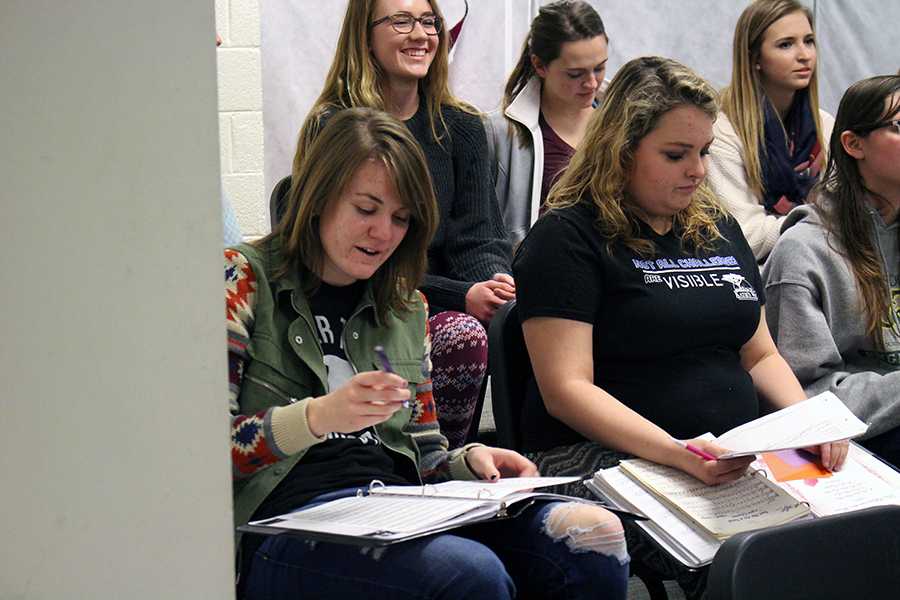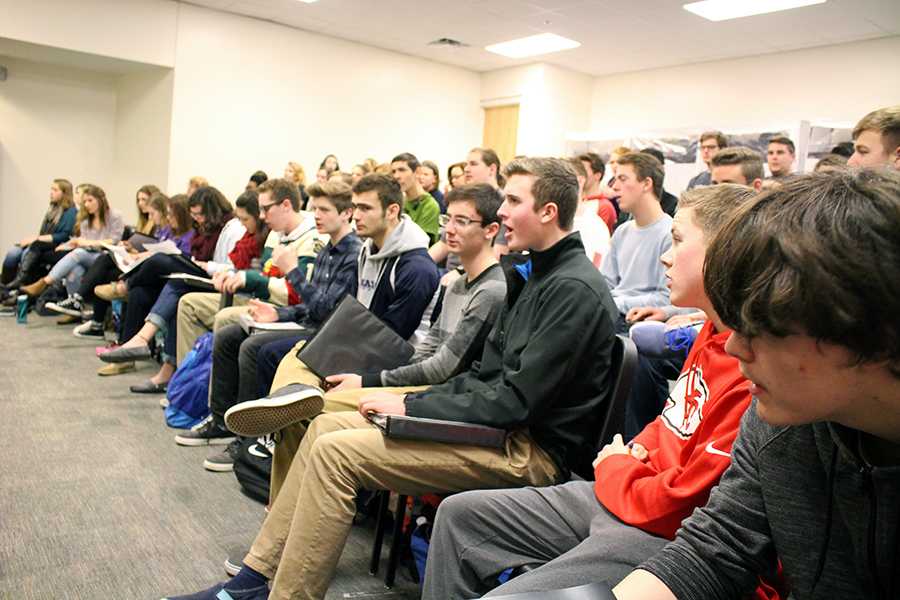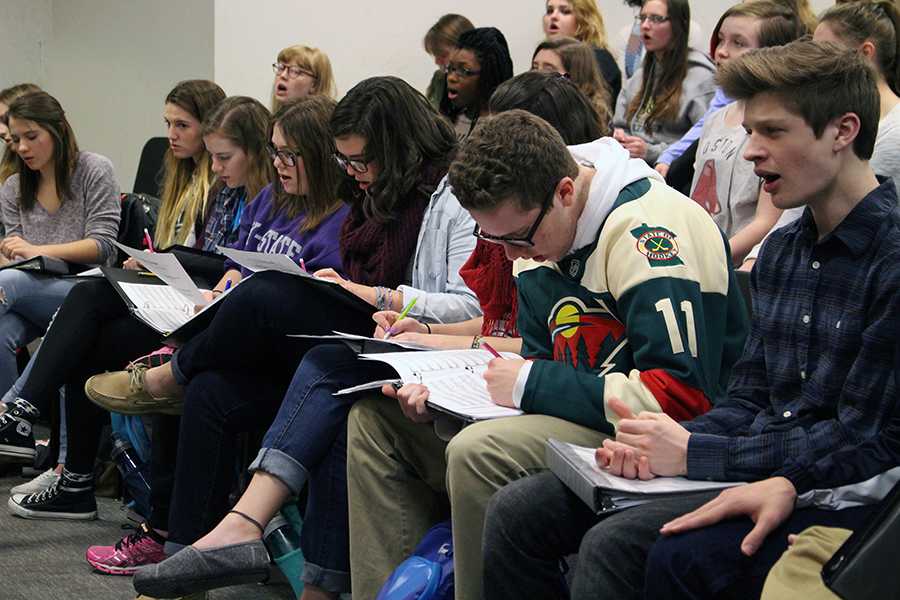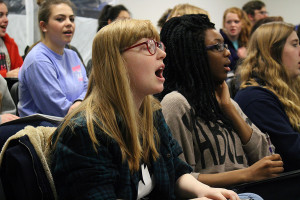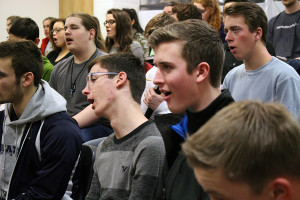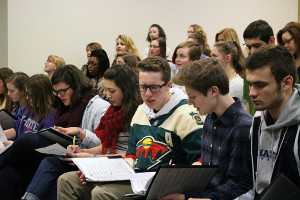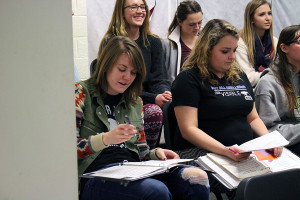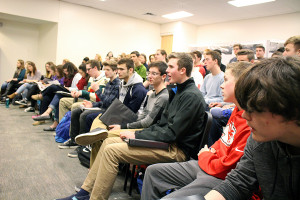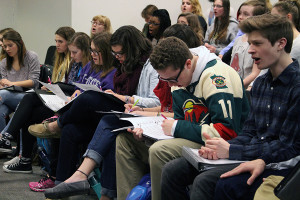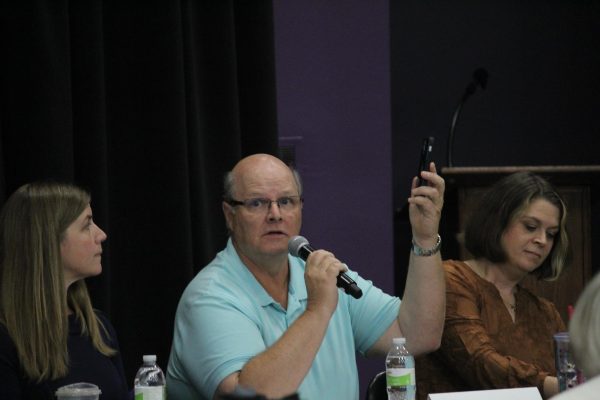Choirs receive taste of foreign cultures
From French and German to Latin, Filipino and Hebrew, choir director Chad Pape always keeps to the standard of incorporating music from around the world into the music selections he gives his various choirs. This is especially true for Chamber Choir, which is currently only rehearsing music in different languages.
“It just adds another layer of complications,” Pape said. “So, in addition to getting notes and rhythms correct, now we also have to learn how to pronounce a foreign language convincingly, and we all have to agree rhythmically on exactly how we’re going to pronounce it and when we’re going to pronounce it, and that kind of thing.”
This quarter, to help his students get a feel for their new pieces, Pape had them look at poems that go along with certain pieces.
“It really helps that [Pape] went over the language and then put it to music,” junior Chamber member Emily Augustine said. “You kind of got to know the language and then you got to know the music part of it … Once we got the music, then we were able to more focus on the melody, the rhythm, rather than trying to learn all of that at one time.”
To help with pronunciation, many students take note of phonetics.
“I write down what it sounds like to me,” sophomore Chamber member Faolan Benco said. “That way, when I’m looking at it, I can just read what I write down.”
But even with the phonetics noted, switching between languages isn’t easy for all.
“It’s difficult to just be constantly going through it, switching between foreign languages,” Augustine said. “[In] German, you pronounce things different than French … You have to totally change your mindset on how you’re supposed to sing.”
As well as learning pronunciations, the choirs will also work on conveying the emotion intended by the composer.
“We haven’t delved into much translation yet because we’re just desperately trying to get the syllables in the correct places, but we will go through and do kind of a line-by-line translation and then talk about what the poetry is getting at in translation,” Pape said.
For some students, learning music in languages from around the world has increased their cultural awareness.
“It makes me more appreciative of other cultures and stuff,” Augustine said. “When we do foreign language stuff, personally for me, I like to kind of learn about what language I’m singing; I like to learn about the place that uses that. So, it diversifies me as a person, or it just lets me experience other things that I wouldn’t normally just go out and be like ‘I want to look up French poetry.’ I don’t typically do that.”
Benco agrees.
“It gets you more culturally aware,” Benco said. “You learn more about what other cultures sing about [and] their style of music.”
As with all new languages it takes time to become proficient.
“It’s always kind of slow going at the beginning because there’s a little bit of culture shock in realizing you have to learn foreign pronunciation,” Pape said. “They’re doing well, just have to be patient.”


